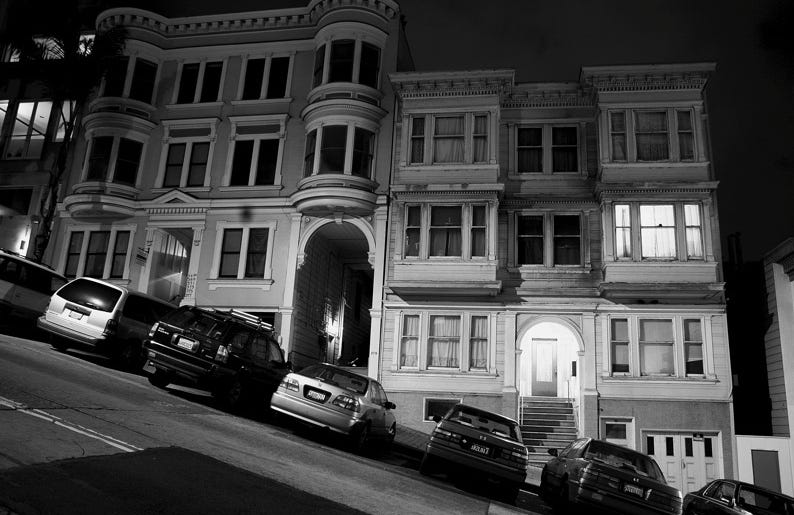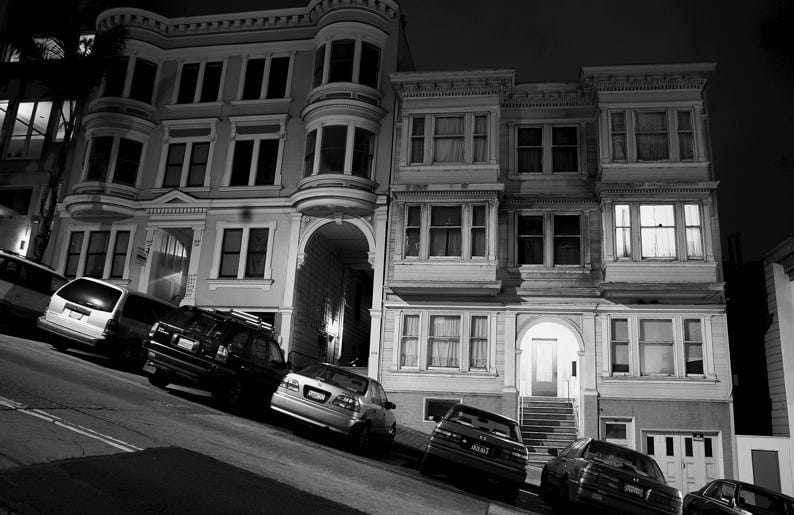
Call Antonio García Martínez whatever you want, but don’t call him boring. The Chaos Monkeys author instantly became public enemy #1 in Silicon Valley after releasing his best-selling book, but became a media darling in the process. He is developing a reputation as a straight-shooting, controversial, sometimes voice of reason within the Silicon Valley tech bubble. His provocative interviews and Facebook posts raise eyebrows and make some cringe, but they are always thought provoking.
I recently had the chance to sit down with him for a wide-ranging interview. We spent a lot of time talking about San Francisco — below are his unfiltered thoughts:
Why did you decide to write the book? Did San Francisco or Silicon Valley inspire you in any way to write Chaos Monkeys?
Antonio García Martínez: Well, I think the Bay Area inspired Silicon Valley, which is what inspired me to write the book. The book is the story of me basically going from being a Berkeley grad student in academic la-la land to Goldman Sachs right at the height of the credit crunch, and then coming back to San Francisco because I just guessed that San Francisco would be the only economic oasis in the coming financial apocalypse that was on the way (that was evident in 2008).
And so in terms of why I wrote the book, well, I think we live in exceptional times. I thought people a century from now would look back and say, “What was it like, when our social lives — what makes us us—became mediated by Facebook and Twitter through a small device?” And no one is really writing it down; no one is recording it. How do we end up in a world in which we have VR headsets that mimic the experience of being in a war zone, and you have half the Middle East trying to escape that at all costs? Somehow that exists on the same planet. So that’s the world that we’re creating, and no one is documenting it. So that really was the impulse behind the book, which is, at the end of the day, a professionally suicidal book. There’s a lot of unspoken rules in Silicon Valley about divulging what it was really like on the inside of companies like Facebook. You’re not supposed to talk about that sort of thing. And Chaos Monkeys very much does.
You wrote this at a time when tension between “techies” and non-tech workers is at an all-time high in San Francisco — talk about that a bit.
AGM: Oh yeah. Some of the ones who wrote reviews on Amazon were definitely non-techies in San Francisco, who considered techies to be this ultimate evil. On the one hand, I’m sort of sympathetic. Obviously, I’m not very kind to the techie mindset in the book — I sort of satirize it. On the other hand, I’m not sympathetic because the reality is I’ve probably been in the Bay Area longer than many of the people who are lamenting the great glorious San Francisco of the past that the techies somehow crushed. I remember the Mission in the late ’90s. It wasn’t that great. The city was nothing that spectacular. There wasn’t some amazing golden age that techies shat upon and ruined. And I guarantee you that if you’re drinking your expensive single-origin coffee and having bacon fucking donuts, it’s because there’s some Googler paying $5 for it—not because whatever artist bohemian type who couldn’t make it in New York and was living in San Francisco in the late ’90s somehow brought that culture there.
Furthermore, if you go even further back, if you really know about the history of San Francisco, it’s always been a gold rush town—always. It has never not been that, except for maybe right after World War II, when the military created the second army expansion, and everything became a lot more middle class. I think the question of rents being high in San Francisco is the problem we’ve had since 1849, and this is the reality of it. And those who are complaining about it now, because the moment they happened to get here 10 years ago maybe wasn’t quite as bad as it is now, are losing a little bit of perspective about what San Francisco is all about and, arguably, might always be about.
Why doesn’t it seem like we are living in a boom time given the rampant homelessness/poverty everywhere?
AGM: Well, we certainly don’t have to be happy about the way things are managed. I’ve been shocked — I’ve been out of San Francisco for the past year and a half, but I come back every three to six months. So you see these time frames far enough apart; it’s like seeing your child grow up. If you see them every three months, it seems very fast. But the parents don’t see it because they’re there all the time. Coming back and seeing the fact that there are basically settlements beneath every highway — that wasn’t the case a year and a half ago. Having traveled in Latin America, it reminds me of Caracas. There are these zombie figures that the regular world doesn’t acknowledge or interact with. It feels very third world. And it’s incredible when you think about it, because San Francisco is the scene of the greatest wealth creation probably in human history or at least since the Renaissance or the Elizabethan age — or the Industrial Revolution. Pick your epoch of amazing economic growth, and we’re living in one of these. And somehow this doesn’t look like a Renaissance Florence as far as the city goes. We’re not exactly leaving a cultural legacy to our posterity either. I don’t know. It’s kind of a mess.
On a separate note, what are your thoughts on Facebook? Will they survive long run?
AGM: Facebook is going to be around for a while. Definitely without question. They’re just really good at what they do.
Consider this singular fact: the version of Facebook you’re looking at — Facebook actually ships production code three times a day. Which, depending on how technical you are, you may or may not find that impressive, but shipping code — particularly on a live website — is like changing the engine on a 747 while it’s in the air. And Facebook decided to go with three times a day. Basically, like the old joke about “Why does a dog lick its balls? Because it can.” Facebook does it because it can.
So what’s your opinion of Mark Zuckerberg?
AGM: Well, I guess it’s in the book. I think he’s a genius. He has managed to nucleate around himself a set of, frankly, followers, who believe in his vision and are themselves brilliant and who reflect that vision onto others and attract other very motivated people. And he’s also created a culture around—again, like I said, the engineering-first culture that keeps very smart— ambitious people, who could get jobs doing other things, working away 12 hours a day at Facebook, just because they want to have that impact and want to have that personal impact and that impact globally, in terms of what Facebook is. And yeah, that’s an act of genius in a way, that he created this maelstrom of creativity around him and market dominance. Yeah, he is a genius.
Do you think writing this book effectively ended your career?
AGM: That’s a good question — so I definitely thought this book could be professional suicide — that I’d have to go and be a Pacific Northwestern sailing bum because basically I’m never going to be gainfully employed again. Since the book has come out, I realized it’s probably not quite the case. Certainly, many Facebookers are not going to love it. There are some people who are portrayed in unflattering ways in the book, and I think rightfully so. While we’re on the topic — I think everyone knows who I’m talking about — the bad guys in the book — there’s been quite a few people who used to work with those people at Facebook who wrote back and said, “Finally! Finally, someone told the truth about these people.” Because, again, there are lots of people who work in the valley who maybe have serious character or moral flaws but because they keep on doing well or failing up, which is another thing you get in Silicon Valley, no one dares criticize them openly.
Any closing thoughts on Silicon Valley or San Francisco?
AGM: Put it this way, all the problems that San Francisco has are problems that other cities would love to have. Other cities like Berlin, Barcelona and every place that is trying to be like Silicon Valley are trying to create the problems that San Francisco has (i.e., there’s so much tech money that it’s ruining the real estate market). One criticism often alleged is that nobody cares about the city. No one’s from here, so no one really cares. But if you go to any east-coast city like New York City, where there’s been a lot of wealth — every big building or school or college you go to has some rich guy’s name slashed on it. I went to the Icahn Hospital, for example. Icahn is a dick of a hedge fund, but at the end of the day, to reduce his guilt, like some sort of medieval indulgence, he goes and pays for a hospital.
Somehow, in Silicon Valley, we’ve seen this massive wealth creation here, and there’s no feeling or desire to give back in any way. The way Silicon Valley becomes “philanthropic” is by investing in yet more stuff. That, to them, is giving back. “Oh, I funded this guy. Which, in a way, is true, and is the brilliance of Silicon Valley.” That’s the nature that iterated wealth transfer from one tech generation to another.
There are exceptions — the Marc Benioff Hospital, the Mark Zuckerberg Hospital—but I haven’t been treated in a Google hospital.







